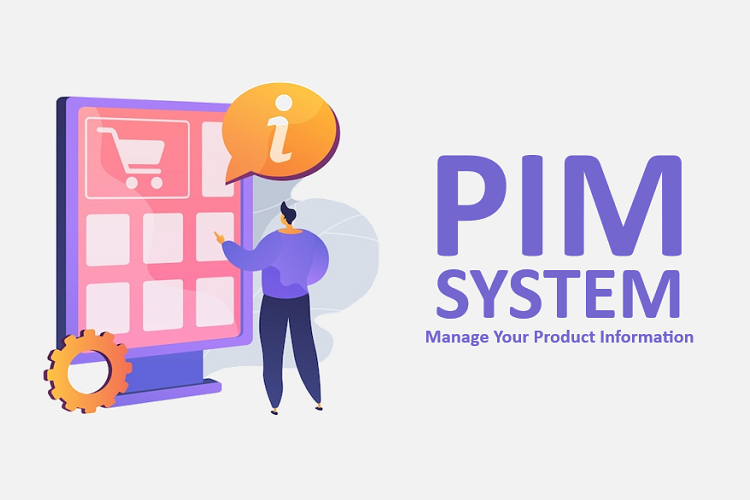If you want to improve the visibility of your business online, then you would need a robust cross-platform app.
A cross-platform app helps you to reach out to a bigger audience in a cost-effective manner. There is an increased demand for cross-platform frameworks as the popularity of such apps grows. Such a type of app gives you a wider reach compared to a native app.
As the demand for cross-platform apps increased substantially, numerous cross-platform frameworks that help the developer to build these apps also grew. If you are not sure which framework amongst these you should choose to build your cross-platform mobile app, then read this blog. Here we have curated a list of 10 top cross-platform app development frameworks with their features.
Cross-Platform App Development Frameworks
It is a type of software that can run on a multitude of computing platforms like iOS, Blackberry, Android, Windows, et cetera. If you build an app with the help of a cross-platform app development framework, then you would write only one code, and based on it build apps for all major platforms.
Advantages of Cross-Platform App Development Frameworks?
Here is a list of the many advantages of using a cross-platform app development framework.
- Code reusability.
- Reduced cost and resources.
- Easy maintenance and deployment.
- Wider market reach.
- Uniform design.
Top 10 Cross-Platform Mobile App Development Frameworks & Tools
Here is a list of the best cross-platform mobile app development frameworks and tools that developers swear by for their ease of use, amazing features, and performance.
React Native
It is arguably one of the most popular cross-platform mobile app frameworks available in the market. This feature-rich framework is based on JavaScript which allows you to write real codes and give the user an almost native-like feel when they use the app. Using this framework, you can build an app that can work perfectly on both iOS and Android.
Thanks to its amazing features, robustness, and the high level of security it offers, businesses trust this framework for developing their apps. If you use this framework, then you can leverage the features of React JS and JavaScript to write modules in Swift, Objective-C, or Java languages.
Furthermore, by leveraging the libraries and native modules in the React Native cross-platform apps, you can also perform highly complex processes. These include functions such as video processing, image editing, and others that are not part of the framework APIs.
Top Features
- It is an open-source cross-platform framework with huge online community support.
- It is highly responsive and comes with amazing rendering capabilities.
- You can access third-party libraries and plug-ins.
- It features a live reload in which you can see two different screens simultaneously.
- It comes with a hot reload feature.
Developer’s tools
- JS editor.
- Emulator, Android Studio, SDK.
- Xcode.
Xamarin
It is also an open-source cross-platform app framework with numerous features that makes it a favorite amongst app developers all over the world. It is based on the.NET platform- Mono implementation. Furthermore, during the implementation process, it uses its own.NET libraries, runtime, and C# compiler. This framework allows you to reuse 90% of the code to build apps for multiple platforms.
Top Features
- It offers an amazing experience as it uses platform-specific UI elements.
- It features a hot reload.
- It is very simple to use as you have to know only.NET and C# to work with it.
- As it has the direct inclusion of Java, C++, and Objective-C libraries, you can use different third-party code bases.
- It offers compile-time checking which results in minimum run-time errors.
- It has a huge online community of app developers.
Developer’s Tools
- Xamarin Studio.
- Visual Code Studio.
Flutter
This open-source and cross-platform app development framework was released by Google in the year 2017. It uses a highly dynamic programming language called Dart instead of JavaScript. This language offers a hot reload feature that allows you to see any changes you have made in the code in real-time. This cross-platform framework allows you to create highly sophisticated applications for Android, iOS, and Fuchsia OS. Whenever you make an app using this framework, it will run flawlessly across multiple platforms without any lag in performance.
Top Features
- It has an integrated engine therefore; you don’t have to make different interfaces for both the Android and iOS apps.
- The mobile apps that are made using flutter are very efficient and offer high performance.
- The Dart programming language allows you to write more structured programming codes. It is easy to maintain synchronized hierarchical structures made for highly sophisticated applications.
- This open-source framework comes with an inbuilt GPU.
- You can easily rebuild the widget tree to find out the code modifications.
Developer’s Tools
- Android Studio.
- Emacs.
- VS Code.
Ionic
This cross-platform app framework has AngularJS at its base. This gives you the flexibility to use multiple programming languages like CSS, JavaScript, Cordova wrapper, and HTML 5 to get access to the native platform controllers. This will help you to create an amazing interface for your app by using highly user-friendly features that would make the app interactive without compromising on its almost native-like performance.
Top Features
- It offers cross-platform support.
- It is based on the SAAS UI framework which was specifically designed for mobile operating systems. It has innumerable UI components that allow you to create a feature-rich and robust mobile application.
- As it is based on AngularJS, you can offer extensions to the HTML’s syntax and use the core functionalities to add highly attractive and useful features and other components to the app.
- It uses the Cordova plugins that allow you to access the hardware of the mobile apps including the GPS, the camera, and the audio recorder. It can significantly improve the performance of the app as well as allow you to add some unique features to make the user experience better.
Developer’s Tools
- Firebase.
- Visual Studio Code.
- Ionic App flow
Node.JS
This cross-platform app framework is based on the powerful V8 engine. This framework can change the JavaScript programming language into a general-purpose language. It can also render an open-source environment which helps in creating scalable and server-side network applications.
The speed of Node.JS is extremely fast because of the V8 engine that can compile the JavaScript to machine code instead of processing it as bytecodes. It also comes with a huge library in which you will find multiple JavaScript modules which can process multiple concurrent connections simultaneously.
Top Features
- The V8 engine of this framework is an amazingly fast dynamic language interpreter.
- The Node.JS apps are highly responsive and they take very little response time for processing requests which gives the app developer the ability to process all the database queries at the same time.
- It has a large online developer community.
- It implements a single-threaded model for the smooth and even functioning of apps.
Developer’s Tools
- PM2.
- Express. JS.
- Socket.io.
- Babel.
- Meteor.
NativeScript
This fantastic open-source framework is perfect for developing cross-platform mobile apps. This framework is based on JavaScript and it offers a multitude of functionalities that includes all native APIs, reusing existing plug-ins right from NPM into the project, and rendering.
Top Features
- This cross-platform framework allows you to access the bundle workflow, which would help you to bundle the source code in a much more efficient manner for app development.
- It renders accessible, beautiful, and platform-specific native UI without using WebViews. You have to just define ones and the framework would adapt to run anywhere. It can even automatically customize the UI for specific screens and devices.
- It offers you a wide range of web resources that include plug-ins for multiple kinds of solutions.
- It allows you to access native iOS and Android APIs.
- It supports Cocoapods and Android Arsenal and it can get local strategies from libraries.
- For programming purposes, it uses Typescript and Angular.
Developer’s Tools
- CLI NativeScript
PhoneGap
PhoneGap is also known as Cordova and is owned by Adobe. If you compare all the cross-platform app development frameworks available in the market, then Cordova has the maximum share in it. This highly rated framework for mobile app development uses CSS, HTML, and JavaScript. This framework offers you a highly efficient and high-performance back-end system that makes it so fast. Therefore, if you want to create applications without many native features, then the PhoneGap is the perfect choice for you.
Top Features
- You can integrate multiple systems like Google Play and App Store directly through the PhoneGap framework.
- PhoneGap apps can run flawlessly on all the popular mobile OS platforms with minimal differences.
- This framework allows you to use JavaScript along with other libraries like Sencha Touch, MooTools et cetera, which ensures better interaction in the app.
- As it has a plug-in nature of architecture, you can extend the APIs in a modular manner.
Appcelerator Titanium
This is a popular cross-platform app development framework that allows you to create apps that can run on multiple platforms and give superior performance. The primary focus of this framework is to streamline the overall process of mobile app development by using the native components that are already present in the JavaScript code.
Top Features
- It comes with various tools that fasten the app development process.
- It features ArrowDB, which is a schema-less data store. It allows you to deploy data models without needing any additional setups.
- It allows the integration of current continuous delivery systems such as SCM solutions.
- It comes with inbuilt connectors for MS SQL, MS Azure, Salesforce, box, and many more.
Developer’s Tools
- Appcelerator CLI
- AMPLIFY
Corona SDK
It is a feature-rich and dynamic mobile app development framework that can work with all the leading operating systems. This open-source cross-platform app development framework is extremely fast and it can render 10 X faster mobile games as well as application development services. It is based on a lightweight and multifaceted programming language called Lua which is very powerful and comes with various features required for app development.
Top Features
- It has a multitude of plug-ins for analytics, media, in-app advertising, and many more.
- This framework is based on the Lua programming language which makes the framework extremely robust and fast.
- You can see any change in the source code in real-time as the framework responds to any change promptly.
Developer’s Tools
- Xcode.
- Android Studio Project
Sencha Touch
If you are looking for a cross-platform app development framework for creating mobile apps for large businesses, then this is perfect for you. The Sencha Touch allows you to create highly interactive native-looking themes and accelerate the hardware features.
Top Features
- The Sencha Touch has a very powerful back-end data package.
- You can get more than 50 built-in and highly customizable UI widgets with this framework.
- It supports Cordova integration, which in turn allows you to get easier access to native APIs.
Developer’s Tools
- App Inspector for Sencha.
Conclusion
The above-mentioned list would help you make up your mind which of these frameworks is best for the app that you plan to develop. When we talk about a cross-platform mobile app development frameworks and tools, then you have to think about various factors to choose one. These factors include your preferred programming language, your technical skills as well as your project requirements, and the platforms you want to focus on.
You must choose the right framework to increase the user base of your mobile app without compromising on its security, ease of use, scalability, and performance.
Ravi Makhija is an entrepreneur, an IT professional, and a Tech geek. Founder & CEO at Guru Technolabs – an award-winning Flutter App Development Company. Loves writing about new technologies and the latest trends in the IT field.




